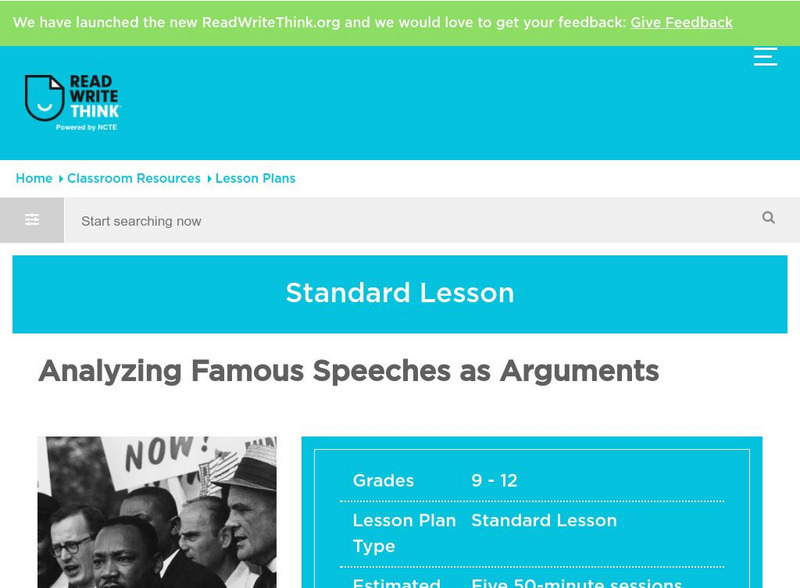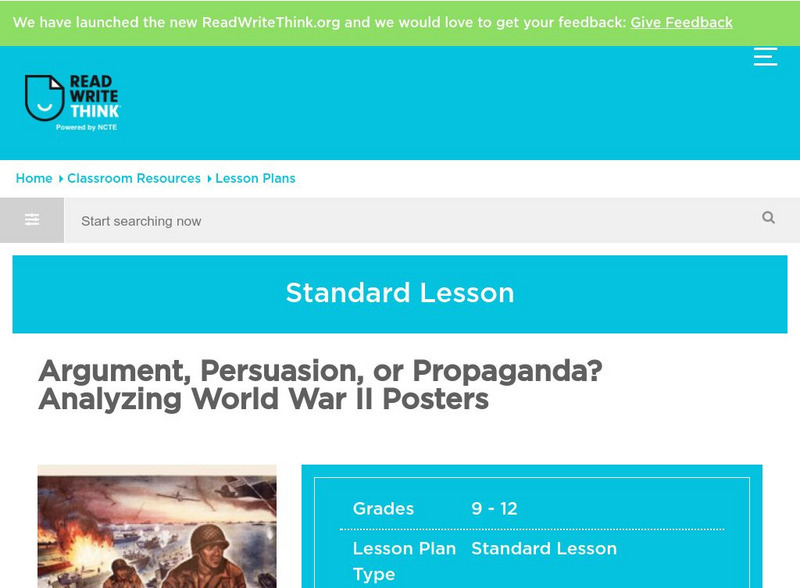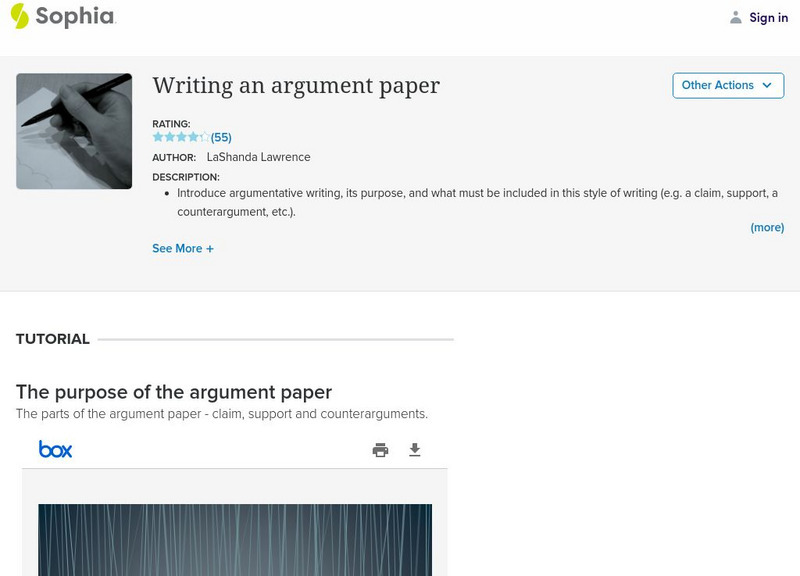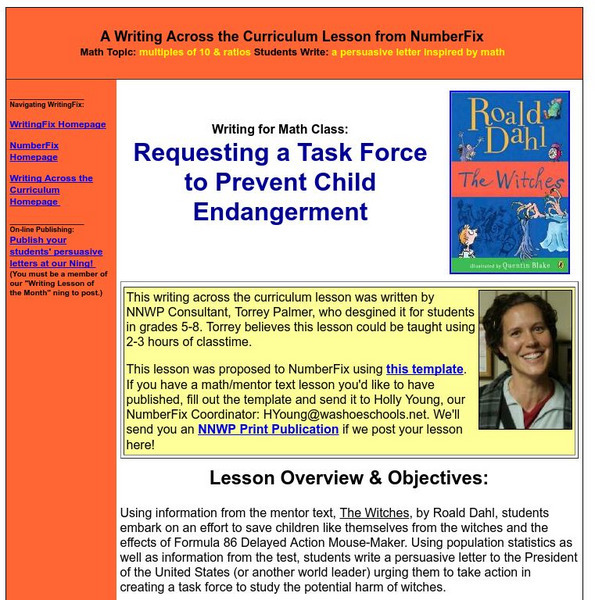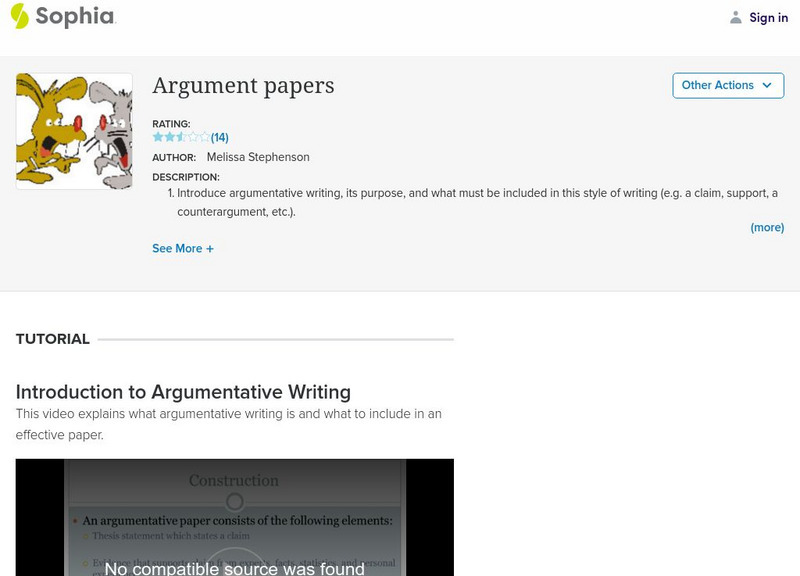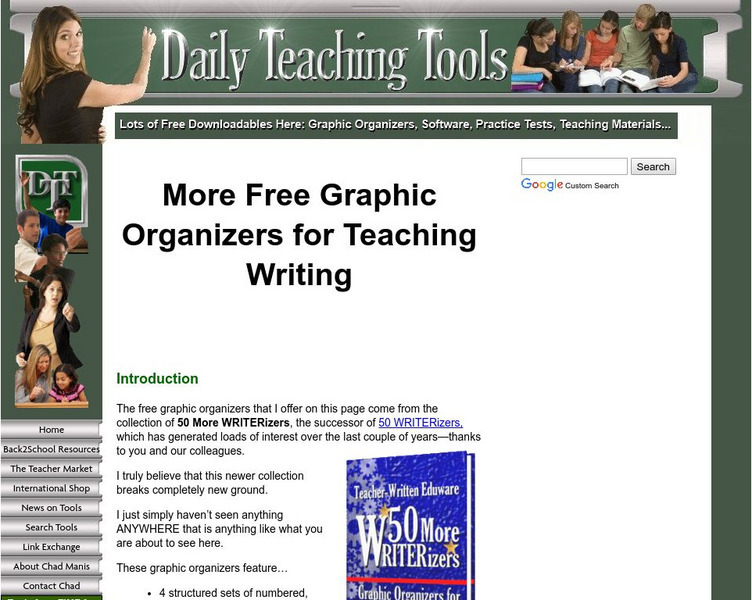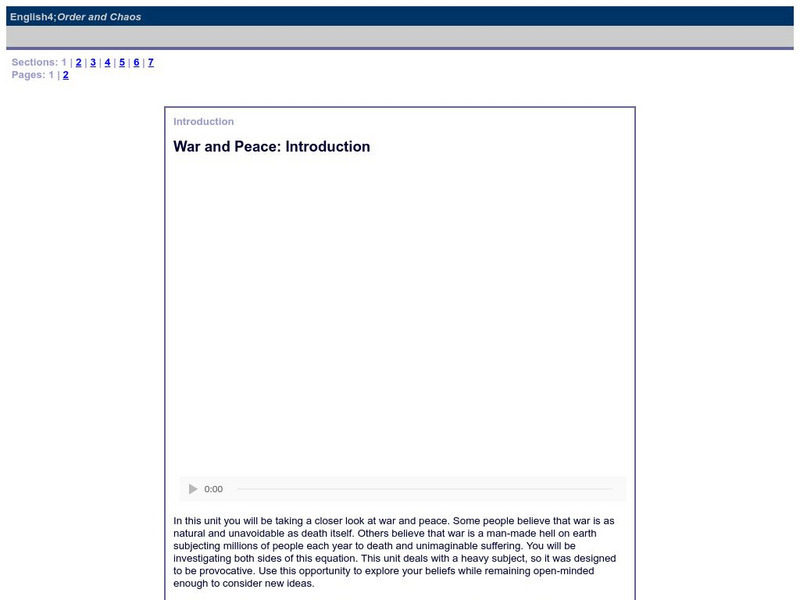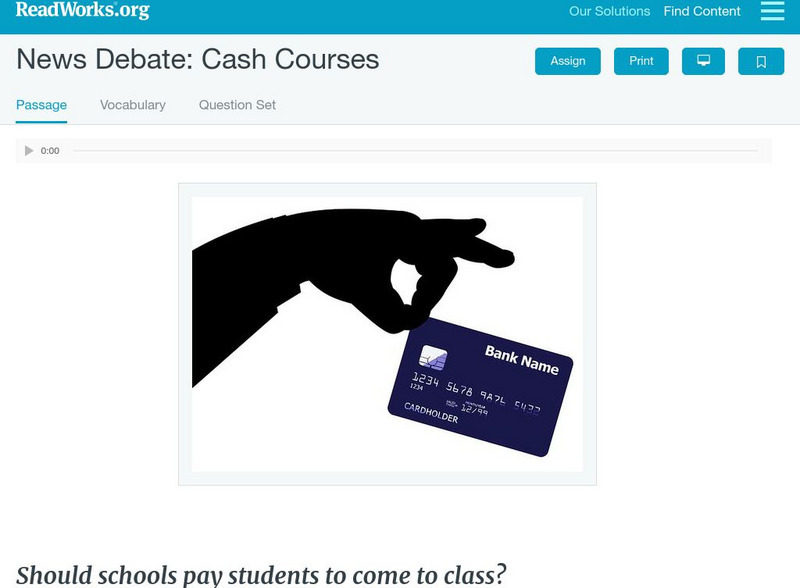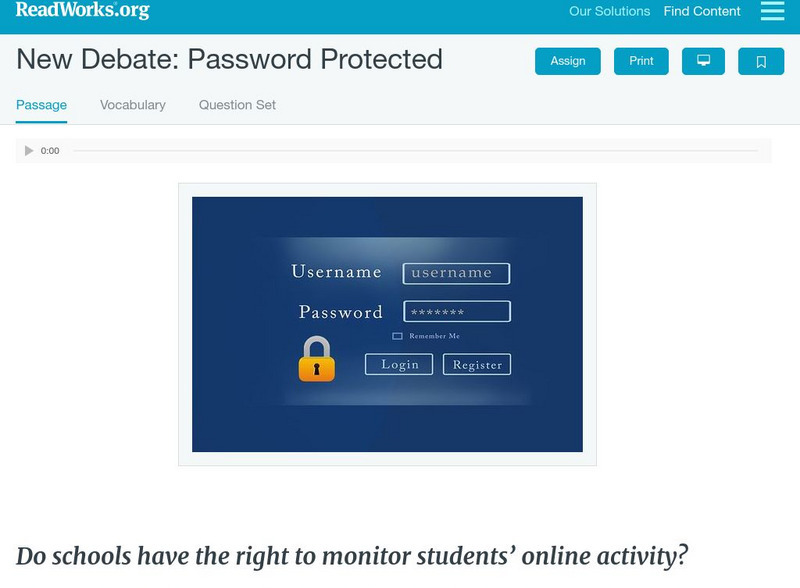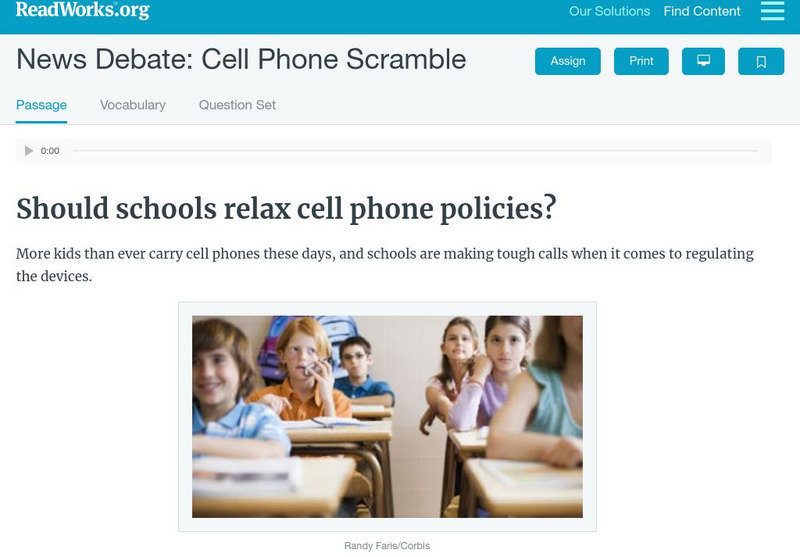ReadWriteThink
Read Write Think: Analyzing Famous Speeches as Arguments
This multi-session activity features the opportunity to analyze a variety of famous speeches. Learners will look carefully at tone, rhetoric, propaganda techniques, and historical context as they write an analysis paper....
University of Sydney (Australia)
The Write Site: Why & How to Use Sources
This University of Sydney reference explains the importance of using reputable sources in academic writings. Then the site provides steps to follow to assist students with using bibliographic sources. Click on the sections list to...
ReadWriteThink
Read Write Think: Argument, Persuasion, or Propaganda? World War Ii Posters
In this lesson, students will analyze World War II posters. Students will first look at the posters as a whole group and will work independently. Students will to determing how the following terms differ: argument, persuasion and...
Writing Fix
Writing Fix: The Wacky Smear Campaign
Inspired by Barry Lane's book 51 Wacky We-Search Reports, in this cross-curricular lesson students learn how to summarize properly.
Other
Crayons and Cuties in Kindergarten: Launching Persuasive Writing in Kindergarten
A kindergarten teacher shares how she introduced persuasive writing in her classroom. After a discussion about "problems" that need to be fixed in their school, the class decided they wanted to write the principal a persuasive letter...
Sophia Learning
Sophia: Writing an Argument Paper
In this slideshow tutorial, students will review how to write an argument paper. Students will review the parts of the argument paper, which include the thesis, claim, support, and counterarguments. CCSS.ELA-Literacy.CCRA.W.1, W.11-12.1a...
CommonLit
Common Lit: Excerpts From Leviathan
A learning module that begins with "Excerpts from Leviathan" by Thomas Hobbes, accompanied by guided reading questions, assessment questions, and discussion questions. The text can be printed as a PDF or assigned online through free...
TES Global
Blendspace: Argumentative Writing
A five-part learning module with links to websites, videos, and a text about writing an argumentative text.
Writing Fix
Writing Fix: Requesting a Task Force to Prevent Child Endangerment
In this lesson, Roald Dahl's book The Witches is used as a mentor text. Students will attempt to save themselves and the other children. Students will analyze real population statistics from world-wide and details from the story to...
ReadWriteThink
Read Write Think: Reader Response in Hypertext: Making Personal Connections
Young scholars write a narrative of place, a character sketch, an extended metaphor poem and a persuasive essay then link all four texts to quotations they have selected from a novel.
Writing Fix
Writing Fix: Voice Building Poetry Lesson: Comparison & Contrast Poems
In this lesson, students examine multiple mentor texts to help drive them toward the final persuasive writing assignment: comparison and contrast poems written from a parent and a child's perspective. A short story, two poems, and a song...
Better Lesson
Better Lesson: W.3.1: Write Opinion Pieces on Familiar Topics or Texts
Links to 37 lessons that focus on skills within third grade reading standard W.3.1.
Other
Aim: Trail of Broken Treaties 20 Point Position Paper
Original text of the plan for the reconstruction of Indian communities, developed by the American Indian Movement (AIM.)
Sophia Learning
Sophia: Argument Papers
A series of six screencast lessons explaining the process of argumentative writing. The first [4 min. 22 sec.] focuses on overall structure and purpose. The second [6 mins, 18 secs] explains how to state a claim. The third [6 min. 3...
Daily Teaching Tools
Daily Teaching Tools: More Free Graphic Organizers for Teaching Writing
This Daily Teaching Tools resource provides free graphic organizers to use while planning and writing persuasive, expository, and fiction texts.
Daily Teaching Tools
Daily Teaching Tools: More Free Graphic Organizers for Teaching Writing
This Daily Teaching Tools resource provides free graphic organizers to use while planning and writing persuasive, expository, and fiction texts.
Better Lesson
Better Lesson: Cause & Effect With "Why Mosquitoes Buzz in People's Ears" Day 4
We are finishing up the story today. Today we are finishing analyzing the story by thinking about how the events and characters developed by the end of the text.
Department of Defense
Do Dea: English 4; Order and Chaos
A learning module asking students to analyze different types of texts, use literary terms, write a persuasive essay, and practice grammar and vocabulary skills all within themes related to order and chaos or war and peace.
Department of Defense
Do Dea: English 4; Order and Chaos
A learning module asking students to analyze different types of texts, use literary terms, write a persuasive essay, and practice grammar and vocabulary skills all within themes related to order and chaos or war and peace.
Georgia Department of Education
Ga Virtual Learning: Logical Fallacies List: Arguments to Avoid [Pdf]
This is a multi-page PDF list of logical fallacies to avoid when writing. These include a detailed list includes fallacies in relevance, reasoning, omission, and ambiguity; and discusses the logic tool "Occam's Razor." This list of...
PBS
Pbs Learning Media: Cats
In this video segment from Nature, learn about cats. Consider the possibility that the cat may become the number one choice for pet owners.
Read Works
Read Works: News Debate Cash Courses
[Free Registration/Login Required] An informational text debating whether students should or should not get paid to attend class. A question sheet is available to help students build skills in reading comprehension.
Read Works
Read Works: News Debate Password Protected
[Free Registration/Login Required] An informational text debating whether or not schools have the right to monitor what students post online. A question sheet is available to help students build skills in reading comprehension.
Read Works
Read Works: News Debate Cell Phone Scramble
[Free Registration/Login Required] An informational text debating whether students should or should not be allowed to use cell phones in class. A question sheet is available to help students build skills in reading comprehension.


